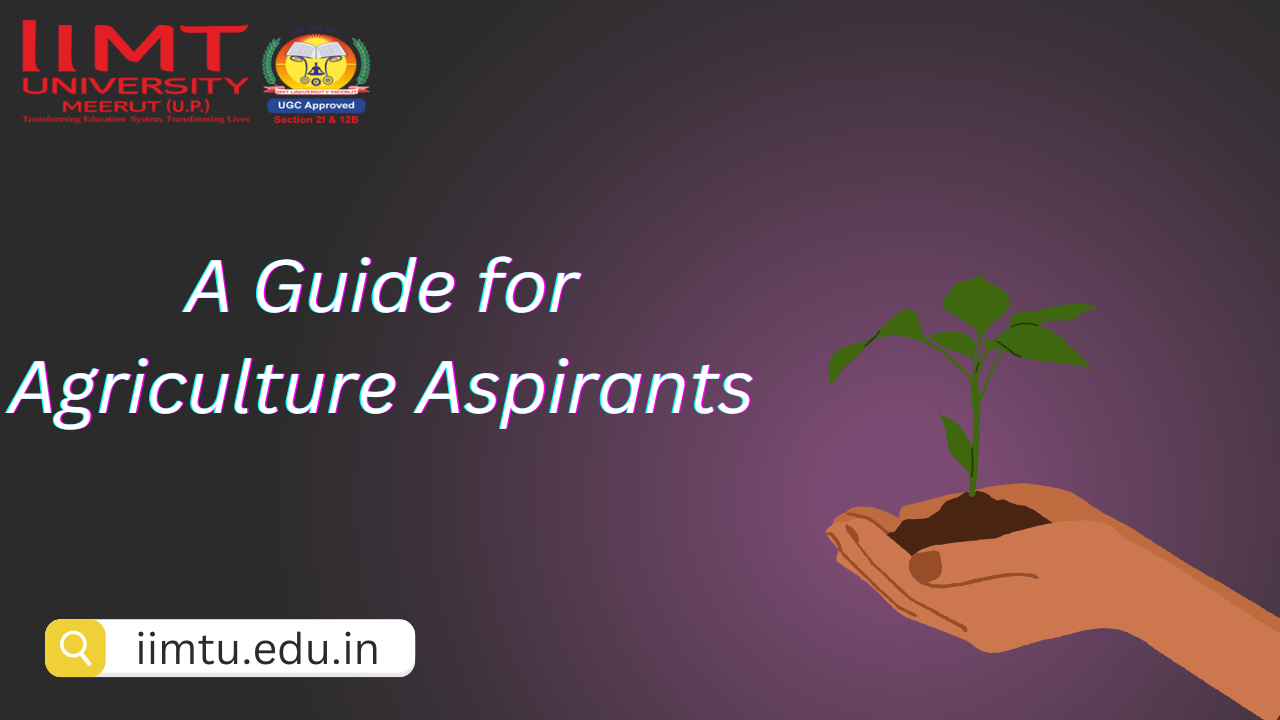A Guide for Agriculture Aspirants
Introduction to Agriculture Courses
In the realm of agriculture, education plays a pivotal role in shaping the future of farming and agribusiness. Whether you’re an aspiring farmer, agronomist, or seeking a career in agricultural technology, agriculture courses can provide the necessary skills and knowledge to excel in this dynamic industry.
Importance of Agriculture
Agriculture is the backbone of civilization, sustaining human life and economic development across the globe. Here are some key reasons highlighting the importance of agriculture:
- Food Security: Agriculture ensures the production of food for a growing population. It is crucial for combating hunger and malnutrition by providing essential nutrients to billions of people worldwide.

- Economic Stability: Agriculture contributes significantly to the economy by generating employment opportunities and supporting rural livelihoods. It forms the basis of many industries, including food processing, textiles, and bioenergy.
- Environmental Sustainability: Sustainable agriculture practices promote biodiversity, conserve natural resources like soil and water, and mitigate climate change impacts. Farmers play a vital role in stewarding the land for future generations.
- Innovation and Technology: The agriculture sector is continuously evolving with advancements in technology, such as precision farming, biotechnology, and drone technology. These innovations enhance productivity and efficiency in food production.
Why Pursue Agriculture Courses?
The field of agriculture offers a diverse range of opportunities, from sustainable farming practices to cutting-edge agricultural research. Enrolling in agriculture courses equips individuals with the expertise to address global food security challenges, develop innovative farming techniques, and contribute to environmental conservation.
Types of Agriculture Courses
-
Agricultural Science and Technology
These courses delve into the scientific principles behind agriculture, covering topics such as crop genetics, soil management, and precision farming technologies. Students gain hands-on experience in agricultural laboratories and fieldwork, preparing them for careers in research and development.
Sample Syllabus:
- Introduction to Agricultural Science
- Crop Genetics and Breeding
- Soil Science and Management
- Precision Agriculture Technologies
- Agricultural Laboratory Techniques
-
Agribusiness Management
Courses in agribusiness focus on the economics and management aspects of farming enterprises. Students learn about supply chain management, marketing strategies, and financial planning tailored to agricultural businesses, empowering them to become effective agricultural entrepreneurs.
Sample Syllabus:
- Principles of Agribusiness Management
- Agricultural Economics
- Marketing and Distribution in Agriculture
- Financial Management in Agribusiness
- Business Planning for Farm Enterprises
-
Sustainable Agriculture Practices
In response to growing environmental concerns, courses in sustainable agriculture emphasize eco-friendly farming methods. Topics include organic farming, permaculture, and agroecology. Graduates contribute to sustainable food production while minimizing environmental impact.
Sample Syllabus:
- Principles of Sustainable Agriculture
- Organic Farming Techniques
- Permaculture Design
- Agroecology and Biodiversity
- Sustainable Crop Production
-
Animal Husbandry and Veterinary Science
For those interested in livestock management and animal health, courses in animal husbandry and veterinary science are essential. Students learn about animal nutrition, breeding techniques, and disease prevention, preparing them for careers as veterinarians or livestock managers.
Sample Syllabus:
- Animal Nutrition and Feeding
- Livestock Breeding and Genetics
- Animal Health and Disease Management
- Veterinary Pharmacology
- Livestock Production Systems
Choosing the Right Agriculture Course
Selecting the most suitable agriculture course requires careful consideration of individual interests and career goals. Here are some factors to ponder:
- Career Aspirations
Identify specific areas within agriculture that align with your professional ambitions. Whether it’s research, farm management, or agricultural consulting, choose a course that caters to your desired career path.
- Curriculum and Specializations
Evaluate the course curriculum and available specializations. Look for programs that offer practical training and opportunities to explore emerging fields like agrotechnology or agricultural entrepreneurship.
- Industry Connections
Consider courses affiliated with industry partners or organizations. These connections can provide valuable networking opportunities and access to internships or job placements within the agricultural sector.
- Faculty Expertise
Research the faculty members’ backgrounds and expertise. Engaging with experienced educators and researchers can enrich your learning experience and open doors to mentorship and collaborative projects.
To know more – Visit our Website
For admission related queries – Click here or call us @ 9997089170
Author :- Davesh

